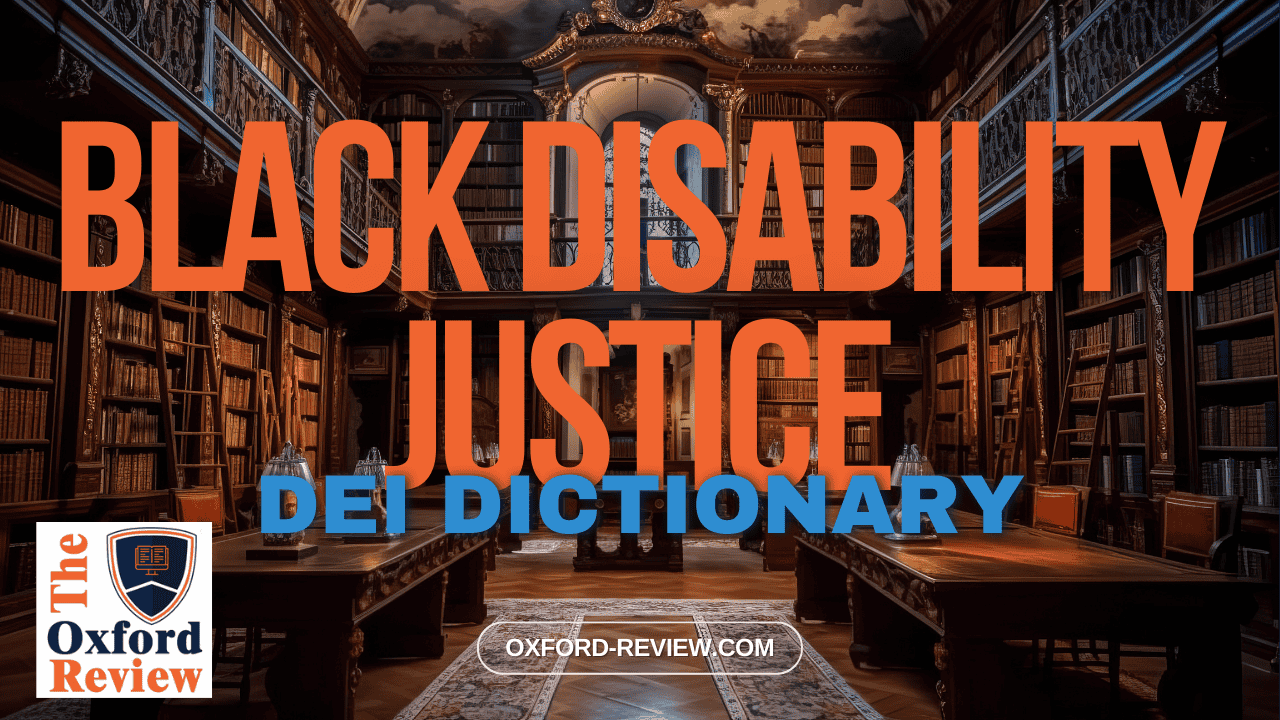Black Disability Justice – Definition and Explanation

Understanding Black Disability Justice: Promoting Equity and Inclusion
In the realm of Diversity, Equity, and Inclusion (DEI), the concept of Black Disability Justice holds significant importance. It intersects the struggles faced by Black individuals and those with disabilities, aiming to address systemic barriers and promote fairness.
Definition:
Black Disability Justice refers to the advocacy and activism that specifically focuses on the experiences and needs of Black individuals with disabilities. It acknowledges the unique challenges they encounter due to the intersectionality of race and disability and seeks to dismantle oppressive systems while promoting empowerment, accessibility, and representation.
Significance:
- Intersectional Perspective: Black Disability Justice recognises that issues of race and disability are interconnected, and thus requires an intersectional approach to address them effectively. By acknowledging the complexities of identity, it strives to create spaces that cater to the diverse needs of individuals.
- Systemic Change: This concept aims to challenge and change societal structures that perpetuate discrimination and marginalisation. By advocating for policy reforms, accessible infrastructure, and inclusive practices, Black Disability Justice seeks to create a more equitable environment for all.
- Community Empowerment: Through community organising and collective action, Black Disability Justice empowers individuals to advocate for their rights and amplify their voices. It fosters a sense of solidarity and support among Black people with disabilities, enabling them to demand accountability and change.
Example:
In the United Kingdom, the Black Disability Justice movement has gained momentum in various spheres, including healthcare, education, and employment. For instance, organisations like Black Thrive and the Alliance for Inclusive Education have been at the forefront of advocating for the rights of Black individuals with disabilities.
One notable example is the campaign for accessible public transportation. Black Disability Justice activists have highlighted the disproportionate impact of inaccessible transport systems on Black communities, particularly those with disabilities. By organising protests, raising awareness, and engaging with policymakers, they have successfully pushed for improvements in infrastructure and services to ensure equitable access for all citizens.
Conclusion:
In conclusion, this is a vital aspect of the broader DEI movement, addressing the unique challenges faced by Black individuals with disabilities. By advocating for systemic change, community empowerment, and intersectional perspectives, it strives to create a more inclusive society where everyone, regardless of race or ability, can thrive. Embracing the principles of Black Disability Justice is essential for building a truly equitable and accessible world for all.
References:
Chin, N. M. (2021). Centering disability justice. Syracuse L. Rev., 71, 683. https://heinonline.org/HOL/LandingPage?handle=hein.journals/syrlr71&div=34&id=&page=
Thompson, V. E. (2021). Policing in Europe: disability justice and abolitionist intersectional care. Race & Class, 62(3), 61-76. https://journals.sagepub.com/doi/abs/10.1177/0306396820966463
Harris, J. E. (2021). Reckoning with race and disability. Yale Law Journal Forum+ H2332. https://scholarship.law.upenn.edu/faculty_scholarship/2379/
Be impressively well informed

Get the very latest research intelligence briefings, video research briefings, infographics and more sent direct to you as they are published
Be the most impressively well-informed and up-to-date person around...
